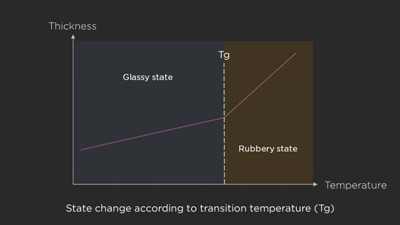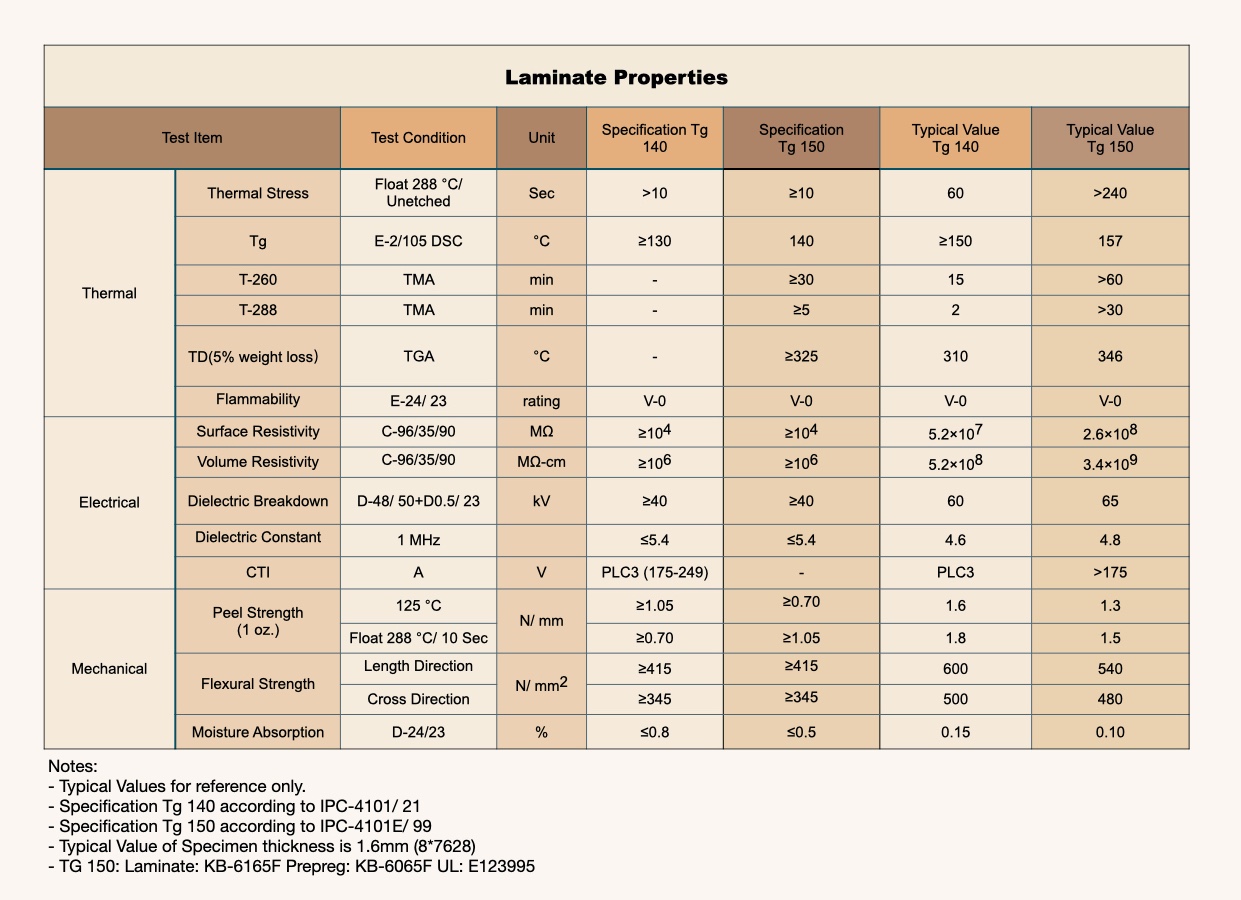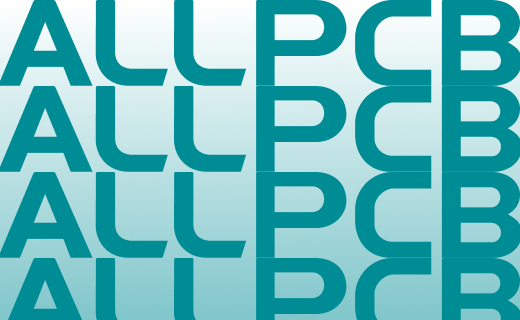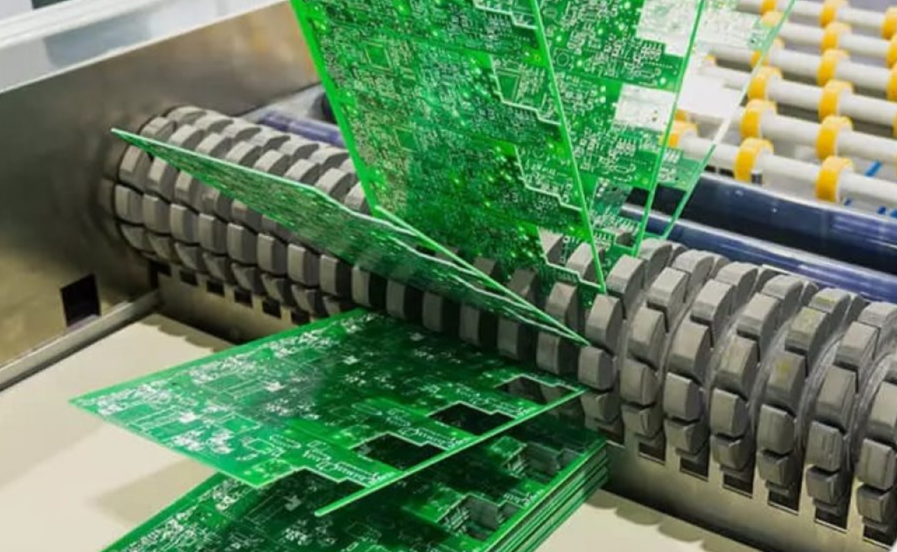


An upgrade of FR4 material——Kingboard Tg150 now fully applied to ALLPCB prototype, as before Shengyi Tg140 is widely used.
What is Tg?
Glass transition temperature, which is known as Tg, is the gradual and reversible transition in amorphous materials (or in amorphous regions within semicrystalline materials) from a hard and relatively brittle "glassy" state into a viscous or rubbery state as the temperature is increased.[1]
The glass-transition temperature Tg of a material characterizes the range of temperatures over which this glass transition occurs. It is always lower than the melting temperature, Tm, of the crystalline state of the material, if one exists.
The printed circuit board should be burning-resistant in the manufacturing process and more important, keep the stability of board dimension (X, Y, Z). It can’t be burned at a certain temperature and only be softened. The temperature point is called the glass transition temperature (Tg).

What’s the difference between Tg140 and Tg150?
High Tg materials are mostly used in multilayer printed circuit boards (≥10 layers), automobiles, packaging materials, embedded substrates, precision instruments for industrial control and other fields. The higher Tg value, the better the performance of PCB heat resistance, moisture resistance, chemical resistance, stability and other characteristics:
Better performance
Resistance to higher temperatures
Longer delamination durability
Lower thermal expansion
Better mechanical and chemical resistance to heat and moisture

What’s the advantage of ALLPCB’s KB Tg150?
Lead-Free/Tg 150/Low CTE (Feature) :
Tg>150°C Lead-free DSC Tg>150°C
Excellent thermal reliability
Low Z-CTE
Anti-CAF capability
Application:
Computer and NB
Instruments
Consumer electronics
Automotive electronics
ALLPCB is always committed to providing the best product and excellent experience to our valued customers.
[1]. Dyre, Jeppe C. (2006). "Colloquium : The glass transition and elastic models of glass-forming liquids". Reviews of Modern Physics. 78 (3): 953–972. doi:10.1103/RevModPhys.78.953. ISSN 0034-6861.
【Disclaimer】
1, ALLPCB releases the news to disseminate more information. It doesn’t represent the viewpoint of ALLPCB!
2, ALLPCB doesn’t guarantee the accuracy, authenticity, integrity, validity, timeliness and originality of the information (including but not limited to words, data and icons)!
3, ALLPCB doesn’t verify the relevant information, which cannot be taken into your consideration of investment. Or else at your own risk!
4, For any infringement, please contact the author directly, or write emails to ALLPCB to get the feedback!









